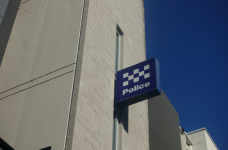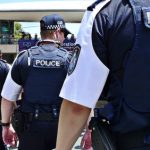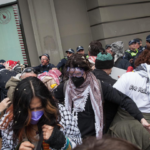More ‘Anti-Terrorism’ Laws on the Horizon

The NSW State Government is well-known for its reactionary approach to perceived threats, with a range of laws enacted in recent years to address concerns about motorcycle groups, alcohol-fueled violence and, most of all, terrorism.
The tragic killing of a NSW Police employee by a 15-year-old boy has triggered the government into seeking ways to prevent further attacks.
As usual, the proposals have ignited debate from both ends of the spectrum – with politicians arguing that the incident justifies greater police powers, while civil liberties and community groups express concerns that the laws will unjustifiably impinge upon the rights of vulnerable individuals, and potentially affect the right to a fair trial in Australia.
New Criminal Offence
Prime Minister Malcolm Turnbull recently announced the introduction of new laws to make ‘incitement of genocide’ a criminal offence.
While the proposed laws were announced in the wake of the Parramatta shooting, the Prime Minister says that they were being considered long before the attack, and that ‘the Attorneys General and Justice Ministers [have been] working from every jurisdiction for some considerable time.’
The Commonwealth Criminal Code currently defines genocide as:
‘Death or grievous bodily harm caused to a person or persons who belong to a particular national, ethnic, racial or religious group, where the perpetrator intends to destroy, in whole or in part, that national, ethnical, racial or religious group, as such.’
Incitement is defined by the Code as urging the commission of an offence with the intention of it being committed. The proposed new law is intended to cover situations where individuals or groups incite a terrorist attack.
They are set to be introduced into Parliament next month.
Control Orders for Children
In addition, Parliament has proposed to lower the age for control orders.
Currently, control orders can be issued to those aged 16 and over. But in the wake of the Parramatta shooting, there are proposals to lower the applicable age to14 years.
As discussed in a previous blog, control orders can be issued by a court on the application of a police officer, and impose onerous restrictions upon individuals – including controls on movement, association and communication.
For instance, section 104.5 (3) of the Commonwealth Criminal Code provides that a person subject to a control order may be prohibited or restricted from going to certain places, leaving Australia, leaving specified premises, communicating or associating with specified individuals, accessing or using specified forms of technology, and so on. In certain cases, the person may even be forced to wear a tracking device.
Section 104.28 currently states that control orders cannot be requested, made or confirmed in respect of persons under the age of 16. For persons aged between 16 and 18, the orders can be issued for a maximum of three months at a time – although there is no prohibition on applying for successive orders over the same person.
Police have also sought greater power to question those suspected of terrorism – now wanting to hold suspects in custody without charge for four days – with the potential to extend this to 28 days with the approval of a court.
Are the New Laws Really Necessary?
Addressing the media last week, the Prime Minister claimed that the proposed changes were ‘necessary’ in the current environment.
Federal Attorney-General George Brandis made the same claim, stating that ‘the Parramatta shooting demonstrates that 14 is not too young for these control orders.’ Brandis told Parliament that the changes will be ‘subject to appropriate safeguards,’ and will:
‘facilitate the monitoring of individuals subject to control orders through enhanced search, telecommunications interception and surveillance device regimes,’ and will ‘provide greater protection to sensitive information in control order proceedings.’
But many have questioned the proposals, arguing that they are unjustified and unwarranted, and could be used to unfairly target vulnerable children from minority groups, further alienating them from the community.
The ACT Government is concerned with the proposals, with the territory’s Attorney-General Simon Corbell stating that ‘the evidence of indoctrination of young people alone is not sufficient to justify reducing the age limit for control orders.’
Muslim MP Ed Husic has also suggested that taking an extreme stance against young Muslims could have a detrimental impact in the long run.
Control orders have been met with considerable criticism since their introduction in 2012, with then-Independent National Security Legislation Monitor Bret Walker SC recommending that they be repealed. Walker argued that such restrictive orders are unnecessary and excessive, foreshadowing that they could be used to:
‘provide an alternative means to restrict a person’s liberty where a prosecution fails but the authorities continue to believe the acquitted (or not convicted) defendant poses a threat to national security.’
Taking that into account, we should consider whether lowering the age for control orders is a necessary or effective solution to any terrorism threat.
In that regard, media reports were quick to point out that 15-year-old Farhad Jabar was previously unknown to police, and that he was quickly ‘radicalised’. As he was not on the police radar, Jabar could not have been the subject of a control order in any event; even if the applicable age had been 14. And in addition to the concerns about unfairly targeting and alienating a segment of the community, there does not appear to be any evidence that control orders prevent terrorist attacks, or stop ‘lone wolves’ like Man Monis who are intent on committing heinous acts upon the community.






